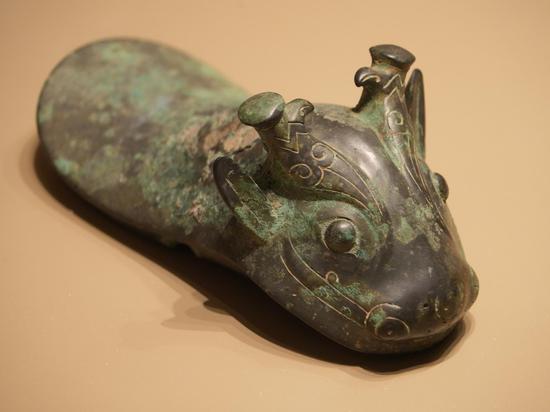Chinese scientists have traced Alzheimer's-related biological changes that happen as early as 18 years prior to diagnosis in a new study that provides valuable guidance for early detection and the development of drugs to treat the debilitating disease.
During the study, which was published in the New England Journal of Medicine on Thursday, the scientists ran regular spinal fluid tests, brain scans and cognitive assessments on a large number of people age 45 to 65 over a span of 20 years. It was led by researchers from Xuanwu Hospital Affiliated to Capital Medical University in Beijing.
Researchers were able to compare the test results of 648 patients who were eventually diagnosed with sporadic Alzheimer's disease with the same number of people with normal cognitive capacities.
Sporadic Alzheimer's disease accounts for more than 90 percent of cases, striking people without a family history of the disease.
Results show that people diagnosed with the disease began registering differences in several of key biological markers around six to 18 years before receiving an official diagnosis.
For instance, differences in beta amyloid — a pathological hallmark of the disease — were noted 18 years prior to its onset, and distinctions in two types of toxic tau proteins were detected around 10 years before.
In addition, cognitive decline diverged six years before a formal diagnosis, according to the study.
"This is so far the world's largest study with the longest follow-up periods on biomarker changes before Alzheimer's disease diagnoses," Xuanwu Hospital said in Thursday's article.
It said that the study revealed for the first time the dynamic changes in brain and spinal fluid and imaging scans from the asymptomatic to symptomatic stage, and clarifies the key turning point when pathological changes occur.
"The finding provides guidance for the development of novel drugs targeting abnormal proteins, as well as robust evidence for ultra-early diagnosis and precise intervention of the disease," said the hospital.
"This provides a time window guide for the development of new AD drugs targeting amyloid-β and related pathological proteins, as well as strong evidence for the ultra-early diagnosis and precise intervention of AD," it added.
Richard Mayeux, a neurology professor at Columbia University in the United States, said in an accompanying editorial that the importance of the study cannot be overstated.
"Knowledge of the timing of these physiological events is critical to provide clinicians with useful starting points for prevention and therapeutic strategies," he said.
China has about 15 million people age 60 and above living with dementia, including 10 million with Alzheimer's disease, according to the National Health Commission. Worldwide, about 55 million people are affected by the disease.
Global scientists are still striving to explain what triggers and accelerates pathological changes related to the disease. There is currently no cure for the disease, although some novel therapies have been approved in recent years to slow the disease's progression.


















































 京公网安备 11010202009201号
京公网安备 11010202009201号